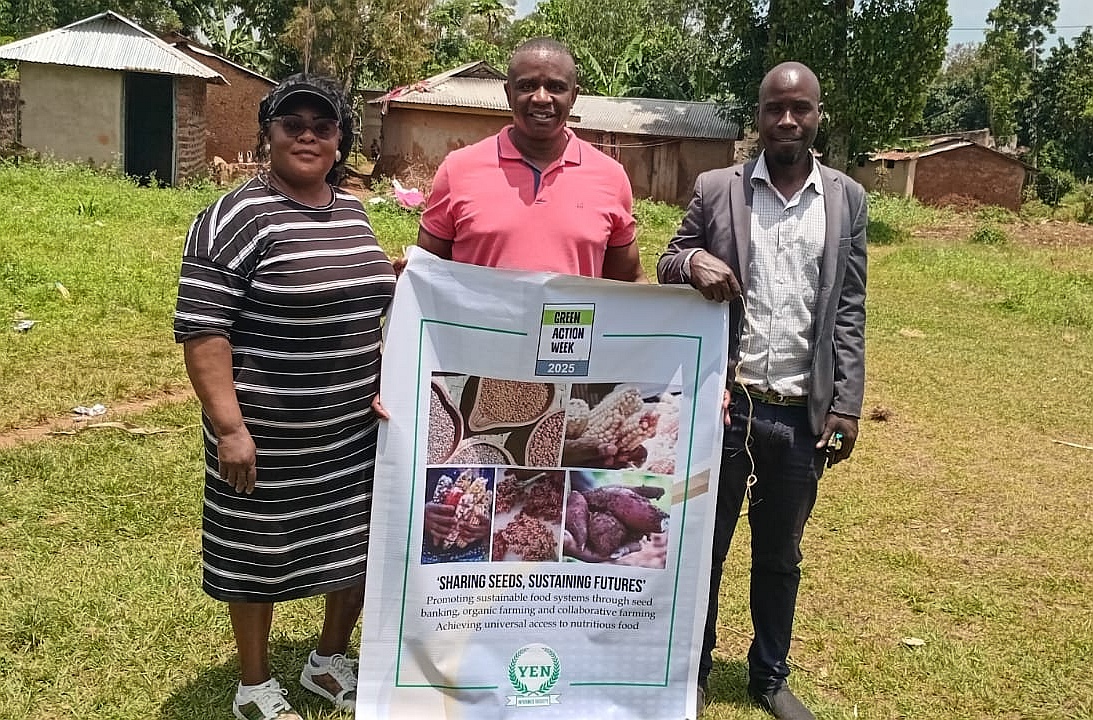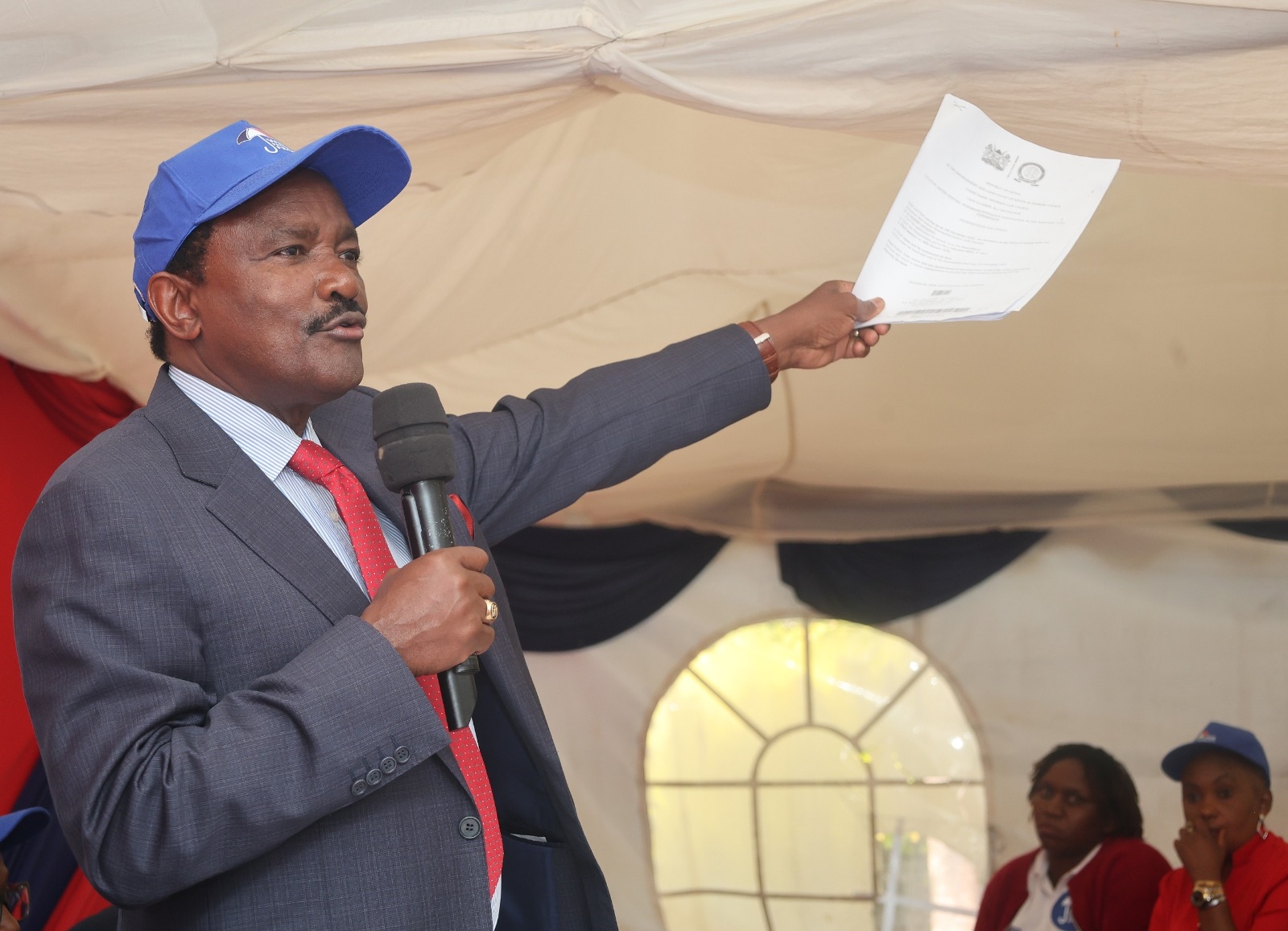 Youth Education Network programmes officer Jacqueline Odari, programmes manager Michael Mung’oma and volunteer Nick Luchendo during the Green Action Week 2025 celebrations at Matungu market on Saturday
/HILTON OTENYO
Youth Education Network programmes officer Jacqueline Odari, programmes manager Michael Mung’oma and volunteer Nick Luchendo during the Green Action Week 2025 celebrations at Matungu market on Saturday
/HILTON OTENYO
Administrators in Matungu, Kakamega County, have received
training on seed banking and climate change in an effort to strengthen
sustainable food systems and safeguard community livelihoods.
The sensitisation drive, held during Green Action Week 2025
at Matungu market and organised by the Youth Education Network, brought
together chiefs, assistant chiefs and village elders.
Participants were taken through practical lessons on
environmental conservation, seed preservation and healthy eating habits aimed
at boosting productivity while tackling lifestyle diseases.
For Ejinja assistant chief Redemta Wameyo, the training was
a revelation. She said farmers are often stranded at the onset of planting
seasons after consuming or selling all their produce. “Our people will now
understand that it’s not a must to buy seeds every time they want to plant. By
saving their seeds, they can avoid delays that affect production,” she said.
Namamali chief Edward Rapando welcomed the initiative,
noting that traditional methods of seed preservation once guaranteed food
security. “The seed banking technique is not new. Older generations preserved
their own seeds and there was sufficient food,” he said.
Youth Education Network director Michael Mung’oma said the
campaign is designed to help communities understand both their contribution to
climate change and the solutions within their reach. He emphasised the
importance of quality seeds in securing reliable harvests.
“The harvest of what farmers plant is not guaranteed because
of the effects of climate change, and the situation is made worse when they use
low-quality seeds. But when they plant their own preserved seeds, they can be
sure of their returns,” Mung’oma said.
He added that chiefs and elders were deliberately targeted
because of their wide reach through barazas and their knowledge of community
practices. “Most stakeholders in climate change action should come from the
grassroots. We are happy with the government’s allocation for climate change
and hope the funds will trickle down where they are most needed,” he said.
Mung’oma also urged the inclusion of climate change in
school curricula, encouraging learners to engage in Competency-Based Education approaches
that make the subject practical. “We visit schools to teach learners about seed
banking, bridging the intergenerational gap because this knowledge risks being
lost,” he added.
INSTANT ANALYSIS
The Matungu seed banking and climate change sensitisation
effort highlights a smart grassroots approach to food security. By targeting
chiefs, assistant chiefs, and elders—who hold influence in communities—the
Youth Education Network ensures the knowledge spreads widely and practically.
The revival of traditional seed preservation is particularly timely, as climate
change continues to erode crop reliability and farmers face rising costs of
certified seeds. Linking food production with healthy eating also broadens the
impact beyond farming. If supported with adequate funding and school-based
training, this initiative could bridge intergenerational gaps and make
communities more resilient against climate shocks.



















